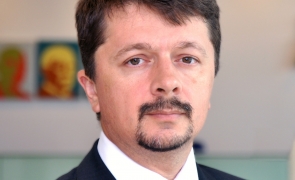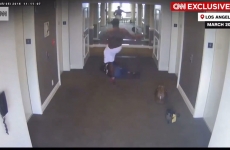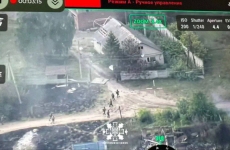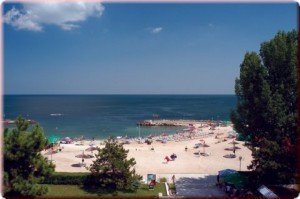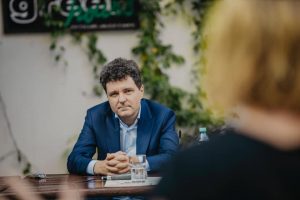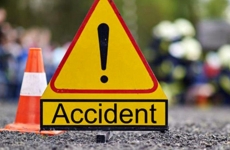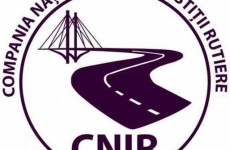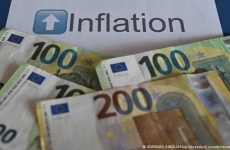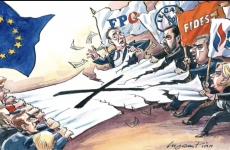The Foreclosures Special Cases General Directorate within the National Agency for Fiscal Administration (ANAF) has started operations this year and has already the first results from receipts related to the cases settled in courts, ANAF President Dragos Doros said in an interview with Agerpres.
The ANAF head also spoke about the current phase of changing forms on registering companies for VAT purposes but also about the fact that, as of June this year, it will be possible to pay taxes both by card at ANAF offices as well as online through the platform ghiseul.ro.
In addition, the ANAF is working on two major projects for the computerization of the institution in order to reduce tax evasion: connecting cash registers to an ANAF server and issuing invoices also through an institution's server. Both projects could become operational from January 1, 2018, said Doros.
AGERPRES: In what stage is the recovery of amounts related to the lawsuits finalized by the courts in Romania?
Dragos Doros: We have had on paper, since January 1, 2016, a new department in ANAF, which is called the Foreclosures Special Cases General Directorate. This Directorate, at this time, is staffed; it has started working and had its first results. For example, in the ICA file, 5.388 million lei has already received from Camelia and Corina Voiculescu; in Rafo file 2 Ovidiu Tender paid 25.7 million lei, of which 4.6 million to the general budget of the state. They have several cases pending. The idea is that Foreclosures Special Cases refers to cases in which the court decided 'confiscate this, take them and sell them,' but which were scattered throughout the country. The number of cases is considerable and a sorting out has started depending on their value. The sales have already started, the Directorate has over 20 people and one service in each of the eight regions of the country. So, somehow, it is a programme through which this year the team has begun to focus on all cases of this kind. We will centralize them, every three months, and we will announce the receipts from these court decisions.
AGERPRES: As to the registration form for VAT purposes, how will it be changed?
Dragos Doros: The 088 form has been amended and it will have decisional transparency on Tuesday. It has created a lot of tension on the market related to the long response time and the very burdensome load of documents. We have reformulated it, we have reduced the number of questions from 20 to 17 and we have dropped, as much as possible, all the documents which could have been renounced, and the information that we could get from other state institutions we no longer require them. It is about the fiscal record. In addition, the form prior required bringing documents on all previous companies, which filed for insolvency or what debts to the state they have. Now we just ask for a tick, those who apply to say "Yes, I have had" and then we seek to see what it is about. Additionally, we have set an analysis of the forms of this type for those who are already VAT payers and in their case, when changing their headquarters, the administrator had to start from zero with the whole procedure. These will get into our analysis, and if the analysis shows they have little risk, then they do not submit the form.
Thus, if a firm has a VAT code, but changes its administrator or headquarters, it sends notice to the ANAF, enters a risk analysis and if the resulting risk is small, then it receives a piece of paper which announces that it still has a VAT code.
So we publish the form for public debate, to be known before being applied, although it is known to the business environment, because we have debated it and we have had changes together. We met with CDR, with consultants and representatives of companies, and these changes are made in a regime of transparency.
AGERPRES: What happens to companies that are currently under the procedure for obtaining a VAT code?
Dragos Doros: Those which are already in the old procedure, when the new procedure comes into force, they will be judged by the new procedure. So all we have in stock, not analyzed yet or which did not receive a reply, will enter the new procedure and will be able to receive the VAT number in line with the easier procedure. Currently, the old procedure is in place, but we are trying to make it as friendly as possible. I have instructed the people to call more to dialogue those submitting the form. And I tell you that the rejection rate is lower lately, and for those whose form was rejected - because you can submit it as many times as you want - the acceptance rate was much higher the second time. So people understand what is right and what is wrong. While there is no wrong answer, a better documentation is needed, and then, at the second attempt, the acceptance rate is high.
AGERPRES: What have you changed at Statement 394?
Dragos Doros: Statement 394 is another form that has created tension. In fact, it is a list of transactions: what we bought and what we sold. We, when we changed it, we had discussions with the business environment and following these discussions certain information was dropped. It is true that the number of pages of the form has increased, but this because we did different sectors of the form for different business sectors. The form has now 18 or 20 pages, depending on how it is listed, but no company fills in them all. If you are from the telecommunications industry or tourism, you fill in one section or another. So, though simplified, it is more dense, but the discussions with the business environment showed that it is better with sections: tourism, IT and so on.
In a week we will put a test form on the ANAF website and we already have a basket of companies that have volunteered to test the form until July 1. So we will have it transparent, we will have also companies to test it with, and on July 1, when it takes effect, I think that we already will be in line with everyone. In addition, the rollback has been renounced.
AGERPRES: When will it be possible to pay taxes by credit card or online?
Dragos Doros: For card payments, the tender procedures of purchase and service have been already started and we hope that early in the summer we will offer payment by credit card at ANAF counters. We hope that online payment will be also early in the summer. The only thing concerning us is related to legal steps in terms of purchases of services. Regarding online payment, this will be made through the ghiseul.ro platform. So, probably in June, taxes will be paid also by credit card or online. Specification books have already been distributed in the territory and soon the tender calls will be announced. We are in the same stage also at ghiseul.ro.
AGERPRES: Do you have levers by which to convince also the mayor's offices to join the system, so local taxes may be paid online in as many localities as possible?
Dragos Doros: Unfortunately, our lever, given the legislation and local autonomy, is the word of reason. But we consider institutional programmes at Government's level and countrywide in which mayor's offices and ANAF slowly integrates into this system in which everything may be paid centralized.
AGERPRES: What other major projects are you still working on at ANAF?
Dragos Doros: We have entered the homestretch line with the procedure for buying software and hardware for the project called "Connecting Cash Registers to ANAF Server". It is a very important project in terms of the fight against petty tax evasion, which is widespread throughout the country. Now, there are 1.2 million cash registers in Romania. They are taxable, but in what way? They have a tax memory card that is secure and that is available to ANAF, but we have to go there to take it and to put another. And there is also the roll of paper that has to be stored too. And this is a post-factum control. That means ANAF comes at a certain time interval, takes that memory and goes with it to the ANAF server to correlate the data. Following this project, all the cash registers will be linked online to a server and the number of ANAF tax receipt will no longer be given by the cash register but it will be generated by the ANAF server. In other words, the ANAF server will know online how many receipt there are and each receipt by whom it was issued and whether a cash register is in operation or not. Then we can go see if the store is open and whether the cash register works or not. This is a very important project in terms of combating tax evasion. It has been discussed for two years, but now is the time when we put pressure on all institutions involved and we have started it. This year we will finish the technical specifications, in 2017 we will put on sale the new tax cash registers and on 1 January 2018 the cash registers will be connected to the ANAF server. And in the great struggle that is called tax evasion, this will be a very important step.
Another step is a second ANAF server that will issue the invoice number. That is all invoices in Romania will have a number generated by that ANAF server and thus the ANAF will know online which were the invoices issued and will be able to track the transactional circuit of the goods in Romania. This means a modern financial administration: computerization! It is not paramount to go and check, but it is paramount to prevent.
These two steps should not necessarily be consecutive, but can be concomitant. It is possible that from January 1, 2018 both projects to take effect, because they do not depend on each other.
AGERPRES: What is the ANAF relationship with the business environment?
Dragos Doros: It is very important that ANAF wants to change its image. Taxpayers in Romania are around 800,000. The vast majority pays regularly or they want to pay regularly, but do not know how or do not have the possibility. A significantly lower part is represented by those who do not want to pay taxes. We want to strengthen dialogue with taxpayers and keep a constant connection with them. And we have the Large Taxpayers General Directorate and eight regional directorates of medium taxpayers in the country, which were set up precisely for this idea to structure those that bring high revenues to the budget and to administer them as well as possible. For small taxpayers, who are spread all over the country and for whom the county public finance agencies have remained, we have a programme to simplify procedures or we issue guidelines that facilitate better management and the smallest possible interaction with the ANAF. They want the same thing. It is much more important to have a dialogue and to know more clearly, you, as administration and you, as taxpayer, what to give and when to give. It is much more important than going every five years to check and decide additional amounts. And for those who do not want to pay taxes, those with Anti-Fraud must press the pedal harder. Eventually, it is our role to cleanse the market of such taxpayers to make more room for those who want to pay.

